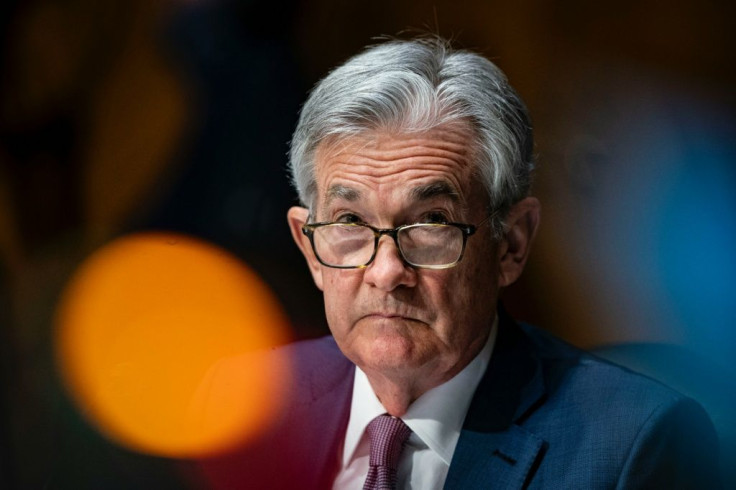Fed's Powell Warns US 'Very Far' From A Strong Labor Market
The US economy is a long way from having a strong job market and the experience of past recessions shows it could take years to recover, Federal Reserve Chair Jerome Powell said Wednesday.
Mass vaccinations are key to halting the Covid-19 health crisis, but it will take a full suite of government policies to repair the damage the pandemic has inflicted on the US labor market, the central bank chief said in a speech.
"Despite the surprising speed of recovery early on, we are still very far from a strong labor market whose benefits are broadly shared," Powell told the Economic Club of New York.
President Joe Biden's proposed $1.9 trillion rescue package includes funds to accelerate vaccinations and aid families and businesses suffering from the Covid-19 downturn, which caused widespread layoffs as businesses were forced to close or curtail operations.
The Fed chief declined to weigh in on the specifics of Biden's plan, pledging to "stick to our knitting."
He deferred to Congress, where a slim Democratic majority is likely to approve the massive bill, though the final amount may be less than originally proposed.
The damage to the job market eroded progress made during the decade-long recovery from the 2008-2010 global financial crisis, which brought gains to minority groups, especially African Americans, until the pandemic's arrival.
Based on the experience from the last crisis, Powell said "it can take many years to reverse the damage" to the workforce.
About 10 million fewer people were employed last month compared to the pre-pandemic period, and many were driven out of the workforce by the need to take care of children or supervise virtual schooling, Powell said.
He also warned that the true jobless rate is about 10 percent, far above the official 6.3 percent rate in January, after adding in people who have given up looking for a job and workers who were laid off but misclassified as employed.

As the pandemic began, the Fed slashed the benchmark lending rate to zero, and Powell said officials have explicitly committed to not raise rates even when unemployment begins to fall.
He also highlighted the Fed's pledge to continue to purchase large amounts of assets to ensure high levels of money flow through the economy.
However, patience from the Fed will not be enough, and repairing the damage "will require a society-wide commitment, with contributions from across government and the private sector."
"Experience tells us that getting to and staying at full employment will not be easy," and workers and households "are likely to need continued support," Powell said.
He also stressed that "policies that bring the pandemic to an end as soon as possible are paramount."
He repeatedly downplayed concerns about the risks of a rise in inflation, which some economists, most prominently former Treasury secretary Larry Summers, have said could happen if stimulus is excessive or poorly targeted.
Even when unemployment fell to a 50-year low of 3.5 percent in February 2020, inflation remained moderate and barely achieved the Fed's 2.0 percent goal, Powell noted.
"Year after year after year, inflation fell short of that" target, due to dynamics of the past three decades that severed the previous link between low joblessness and rising prices.
In the current environment, "we want to see actual inflation," before acting, Powell said.
The Consumer Price Index for January showed that apart from gasoline prices, inflation remains tame, rising just 1.4 percent over the past year, according to Labor Department data released on Wednesday.
Powell said prices could spike temporarily in coming months as spending resumes, but those are unlikely to be meaningful or lasting.
© Copyright AFP {{Year}}. All rights reserved.





















